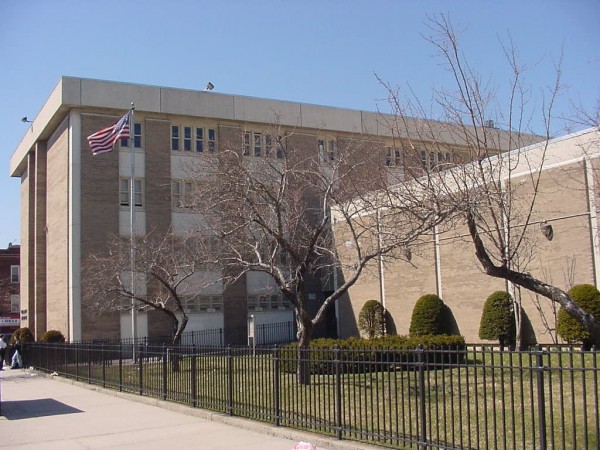
Upgrades at JHS 210 in Ozone Park was one of several projects in last year’s round of participatory budgeting coming out of City Councilman Eric Ulrich’s office. File Photo
While formal meetings to discuss proposals and vote are still several months in the offing, City Councilman Eric Ulrich (R-Ozone Park) and community leaders talked to The Forum this week about the participatory budgeting process and how it has impacted the concept of local governance.
Last year, Community Board 9 was introduced to the participatory budgeting initiative—an optional “democratic process in which community members directly decide how to spend part of a public budget. In other words, the people who pay taxes decide how tax dollars get spent,” the City Council explained.
Residents in Woodhaven, Ozone Park, Richmond Hill, and Rockaway voted last spring to decide how to spend a little more than $2 million in city funding for their neighborhoods. Projects that were approved included school upgrades to JHS 210 in Ozone Park, PS 273 in Richmond Hill, PS 60 in Woodhaven, and PS 64 in Ozone Park; the installation of real-time bus clocks at four bus stops; paving along Woodhaven Boulevard; repaving paths in Forest Park; and upgrades at Richmond Hill Library.
“We learned a lot last year, as far as what can be taken care of under the participatory budget,” said Ed Wendell of the Woodhaven Residents Block Association. “Some people were unhappy with the ballot process. But the key word is ‘participatory’—if they don’t participate, they don’t get a voice.”
While Ulrich noted that “we won’t know until January what’s in the realm of possibility” as far as the exact monetary amount to spend, “we’ll start brainstorming sessions in about a month or two” to develop ideas for the funds.
“This is where you can have a direct impact on the community,” said Wendell, who added that he’s preparing this year to propose the installation of several speed bumps in Woodhaven. “It’s a terrific experiment, and we’re thankful to Councilman Ulrich for bringing this to the community.”
As far as the fiscal year 2015 budget process between freshman Mayor Bill de Blasio and the council, Ulrich reported that “for the most part it was open and transparent.” But that’s not to say he had no qualms about the $75 billion package.
“I was really disappointed that Mayor de Blasio didn’t see fit to include the Rockaway ferry,” Ulrich said, adding that he had hoped the administration also would have allocated funds for another police academy class. “We need more cops—not just in my district, but across the five boroughs.”
While participatory budgeting funds cannot be used to augment the police force, Howie Kamph, president of the Ozone Park Civic Association, said it is important that communities carefully select where the money does go.
“If you don’t have things to use [the funds] on, you’re forced to spend it or lose it,” he said.
Wendell echoed Kamph’s sentiment, stressing the importance of preparation in the process.
“There’s always someone out there with a better idea,” Wendell said. “The trick is getting them to come down and present.”
By Michael Cusenza
